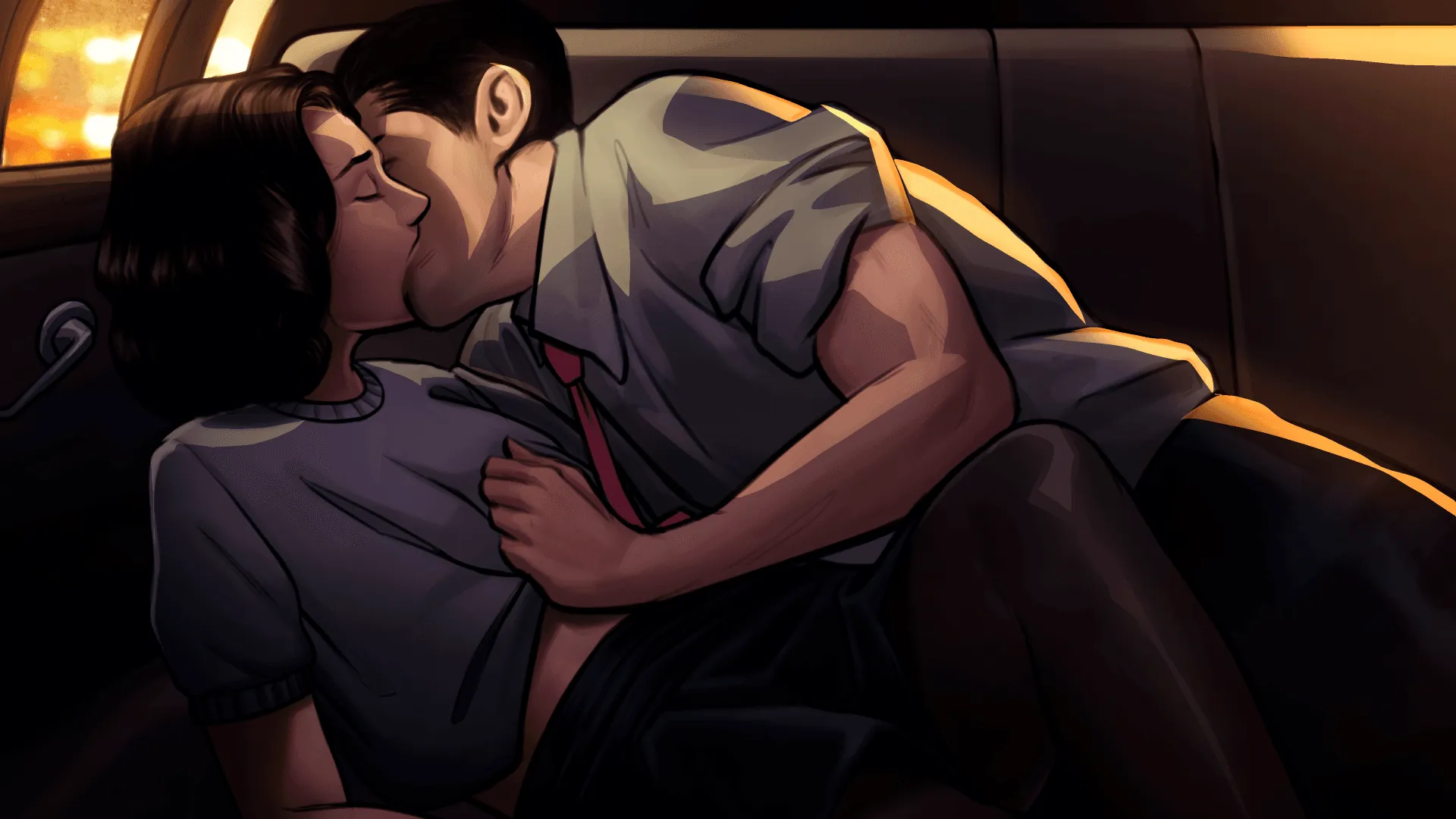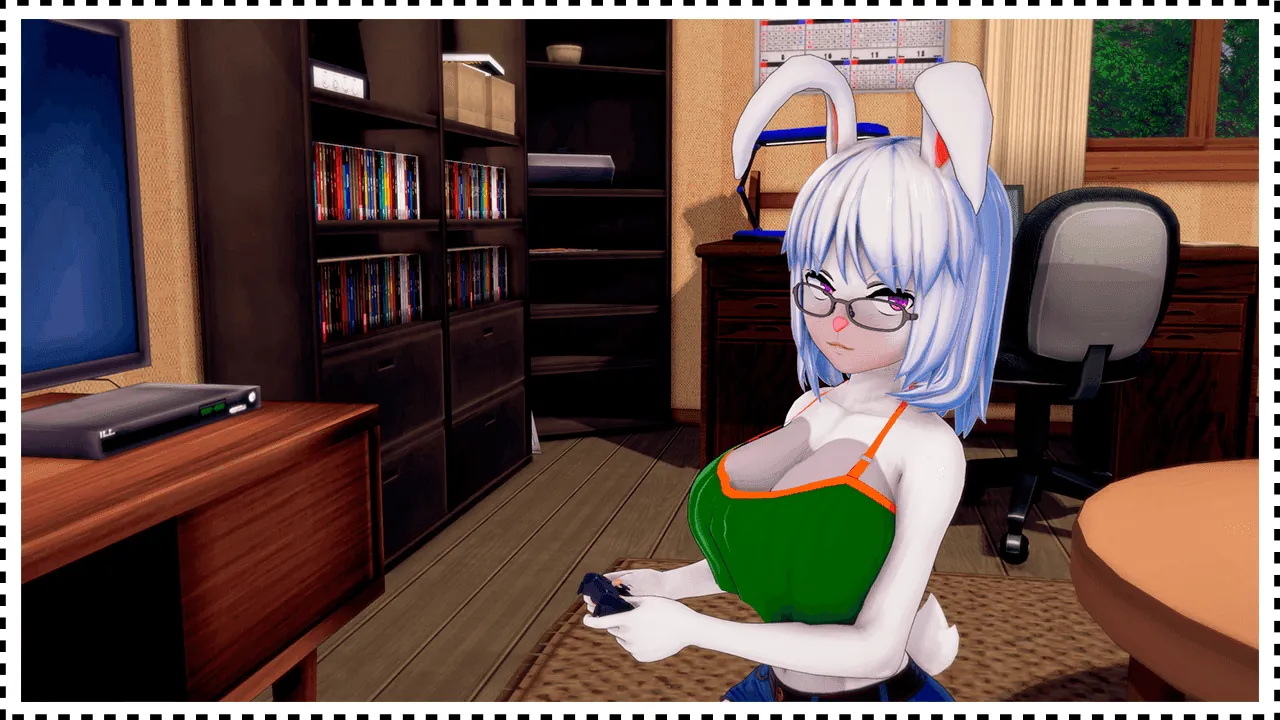
A Summer’s End – Hong Kong, 1986
Play A Summer’s End – Hong Kong, 1986
A Summer’s End – Hong Kong, 1986 review
A Journey of Love and Identity in 1980s Hong Kong
In the vibrant setting of 1980s Hong Kong, ‘A Summer’s End – Hong Kong, 1986’ offers a captivating visual novel experience. This game follows Michelle, a young office worker, as she navigates a summer romance with Sam, a home video store owner. Set against the backdrop of neon-lit streets and traditional culture, the game explores themes of love, identity, and family.
Chapter 1: Storyline and Themes
Exploring the Narrative
Picture this: neon-lit streets, synth-pop buzzing through arcades, and the hum of a city caught between tradition and rapid change. 🏙️✨ That’s the world “A Summer’s End – Hong Kong, 1986” drops you into—a visual novel that’s as much a love letter to 1980s Hong Kong as it is a tender story about self-discovery. At its heart are Michelle and Sam, two women navigating not just their growing feelings for each other, but the weight of societal expectations.
Michelle, a reserved office worker, and Sam, a free-spirited artist, couldn’t be more different. Yet their chemistry crackles like the static of an old TV set. 🎨💘 The game doesn’t rush their relationship; instead, it lets you linger in quiet moments—shared meals, late-night conversations, and stolen glances that speak louder than words. It’s a queer romance that feels achingly real, avoiding clichés to focus on vulnerability and authenticity.
“I didn’t just play this game—I lived it. The choices you make for Michelle and Sam don’t just shape their story; they make you question what you’d sacrifice for love.” — A player review
What makes this visual novel stand out? It’s the way it weaves personal stakes with cultural ones. Michelle’s struggle to reconcile her identity with her family’s traditional values mirrors Hong Kong’s own identity crisis during the ’80s, as the handover to China loomed. You’re not just clicking through dialogue; you’re stepping into a time capsule.
Themes of Love and Identity
Let’s get real: identity themes aren’t just a backdrop here—they’re the engine driving the story. 🌟 Michelle’s journey isn’t just about falling for Sam; it’s about untangling who she is beneath layers of duty and fear. The game asks, “How do you love openly when society tells you to stay hidden?”
Family dynamics add another layer of tension. Michelle’s mother, with her sharp critiques and unspoken worries, isn’t a villain—she’s a product of her time. Their strained conversations over tea or during tense dinners feel ripped from real life. 🍵💔 Sam, meanwhile, represents a life less governed by rules, but her carefree attitude masks her own fears of rejection.
The beauty of “A Summer’s End – Hong Kong, 1986” is how it normalizes queer relationships without glossing over their complexities. It’s not about grand gestures or dramatic coming-out scenes; it’s about small, defiant acts of courage—like holding hands in a crowded market or choosing honesty over silence.
Cultural Significance in 1980s Hong Kong
If you’ve ever wondered what 1980s Hong Kong looked, sounded, and felt like, this game is your time machine. 🕰️🎶 From the fashion (think shoulder pads and permed hair) to the bustling dai pai dong street stalls, every detail oozes 1980s Hong Kong culture. But it’s not just aesthetics—the game digs into the era’s social tensions.
Take this example: Michelle’s job at a trading company mirrors Hong Kong’s economic boom, while her brother’s activism hints at the political unease brewing before the 1997 handover. Even the soundtrack—a mix of Cantopop and synth-wave—anchors you in the decade.
| Cultural Element | How It’s Used |
|---|---|
| Neon Signage | Symbolizes the clash between tradition and modernity |
| Teahouse Scenes | Highlight generational divides in family dynamics |
| 1980s Slang | Adds authenticity to character interactions |
The game’s cultural significance lies in its refusal to romanticize the past. It shows Hong Kong as it was—vibrant, conflicted, and on the brink of transformation. For Michelle and Sam, the city isn’t just a setting; it’s a character shaping their choices, fears, and hopes.
So why does this matter? Because stories like “A Summer’s End – Hong Kong, 1986” remind us that love and identity are never just personal—they’re woven into the streets we walk and the histories we carry. 🌆💖 Whether you’re here for the queer romance, the nostalgia trip, or the rich identity themes, this game doesn’t just tell a story—it invites you to live one.
In conclusion, ‘A Summer’s End – Hong Kong, 1986’ offers a poignant and visually stunning experience, blending romance, identity exploration, and cultural depth. For those interested in visual novels or stories set in unique historical contexts, this game is a must-play. Take a journey through the vibrant streets of 1980s Hong Kong and discover the beauty of love and self-discovery.












